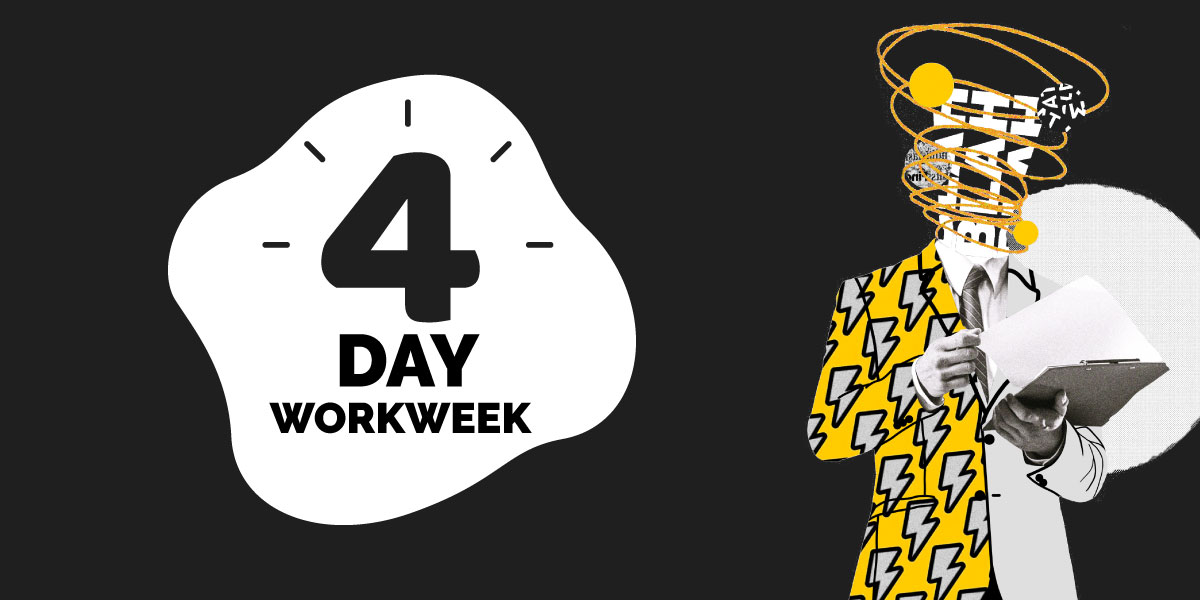
Four Days A Week: A Study In Possibility
Perhaps it was the terrible, inescapable fact of a global pandemic that pushed us to the edge, and savagely gave us the realization that not everything needs to be a life or death situation, especially when even leaving the house felt like taking your life in your hands. Plenty of us left our jobs after that. So many, in fact, that they called it the “great resignation.” As millions of people all over the world suddenly remembered that life is short and shouldn’t be spent doing something you dislike for forty hours a week, employers started doing what they’re rarely compelled to do: a little soul searching.
And the workers began to remember the power they wield.
They showed their employers they could be just as, if not more, productive from the comfort of their own homes. And their employers took notice.
One of the most fascinating byproducts of this pandemic-created shift in our approach to work has been the multi-country trials for the four-day work week. With so many workers now doubting the benefits of a five-day work week, many countries (like Iceland and Scotland) and companies are testing out, or even codifying, the removal of a day of work.
The fact that these trials have been largely successful should be no surprise to anyone who has ever felt unsatisfied and still tired as the final day of the weekend draws to a close. It’s pretty easy to see how a shorter work week could be successful.
Companies have noticed how, when workers have more free time for activities that enrich their lives, they return to their jobs with renewed energy and ability to accomplish their tasks with greater determination. In fact, there has been little to no loss of productivity for companies that have initiated four-day trials.
By giving employees a paid day off, companies have even seen a significant increase in productivity across the board. During the last months of 2022, all across Europe, employers who enacted these trials were surprised to find that their employees were more productive and energized when provided with more free time.
In short, four-day work week trials are going very well for a vast majority of those who have given them a try. In Sharjah, as a prime example, this approach to work has been implemented to resounding success, with companies reporting an 88% increase in productivity, and a much happier workforce. Workers are thriving here, and are bringing their increased energy and drive back to their employers.
There are, of course, arguments against this newer approach.
Workers are frequently expected to work longer hours during the four days they do work. A ten-hour work day isn’t anyone’s cup of tea, and many companies expect it when the work week is shortened. It should also be noted that, after the honeymoon phase of a shortened week has worn off, the thrill has diminished as well and it’s back to the grind, with all the usual complications and stresses that were there before.
And companies that experience “crunch times” will expect more when they have their people for less time, which can lead to burnout. Having to focus harder and work faster will always increase staff stress levels at quicker rates.
Still, there is absolutely no harm in debating and playing with ways to make things better for our workers. As societies evolve and grow and, hopefully, improve, there is absolutely no reason that the rules for employment shouldn’t evolve as well. We want life to improve as societies progress, don’t we?
As COVID wanes globally, and life returns to normal, let us not forget that some of the things we previously considered “normal” were not that at all. They were just tradition.
So, is the five-day work week just like that shitty ex we remember too fondly in hindsight (no, you don’t really miss them,) or is it the best way for humans to work? While experiments in a four-day work week indicated that we can do better, is that possible, or will change just bring along its own set of complications that aren’t any better than where we are now?
Can we honestly and truly find a better way to work? Is it possible that we haven’t reached our full potential and we can be better than what we are?? Well…
Yes.
